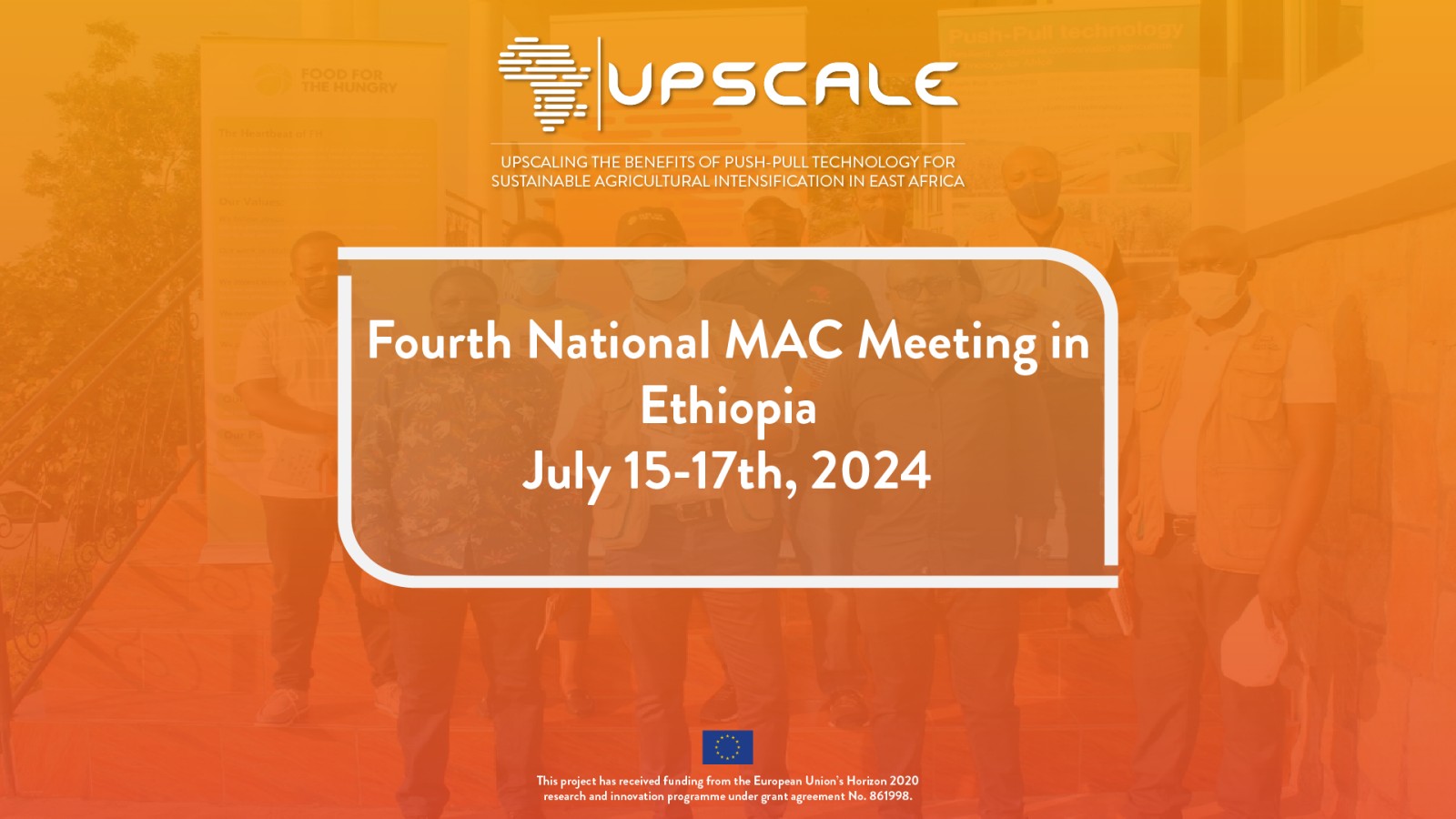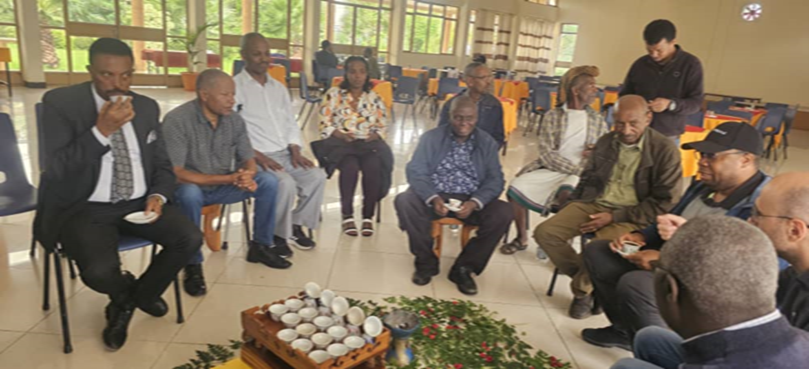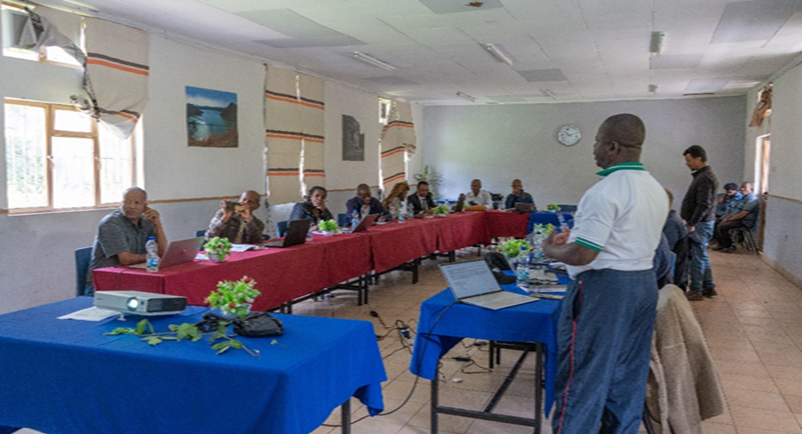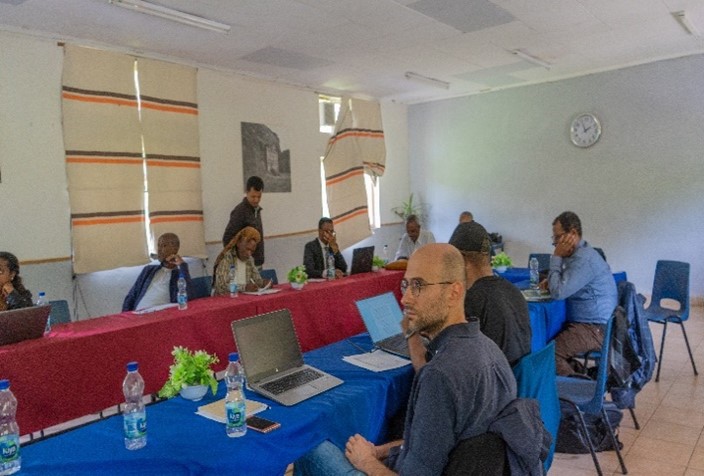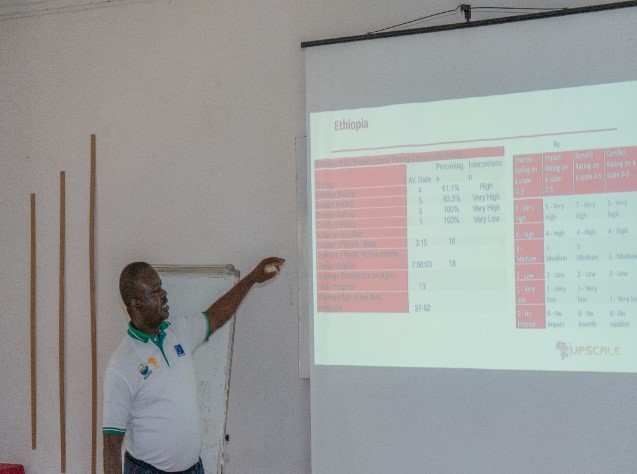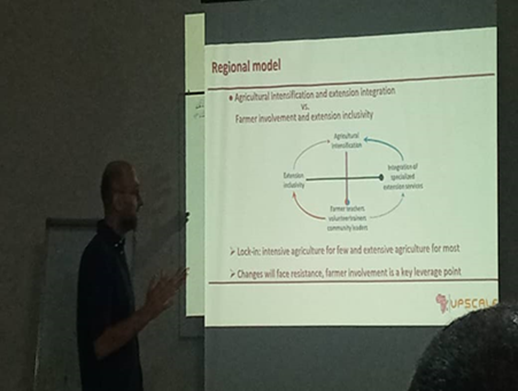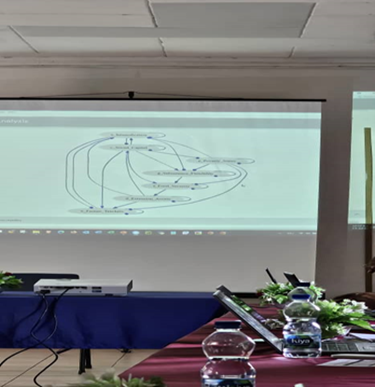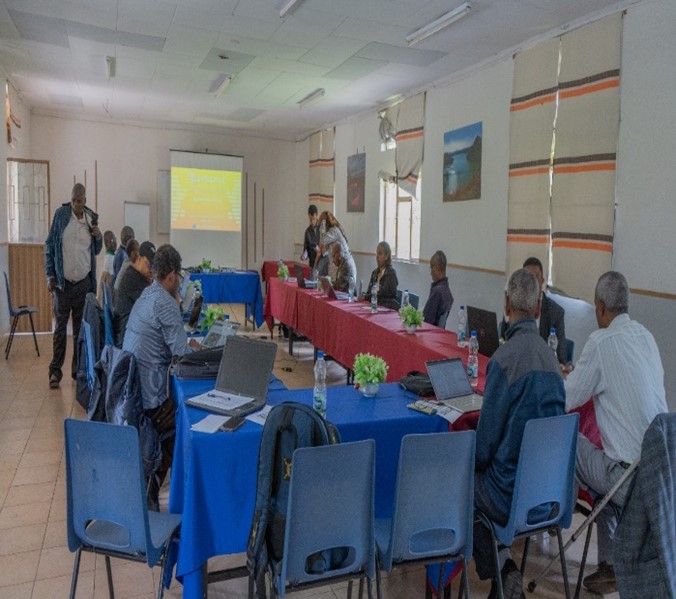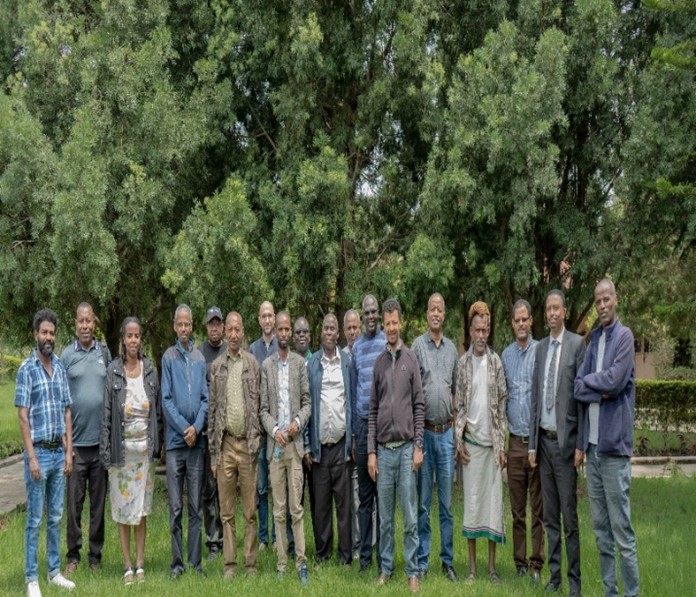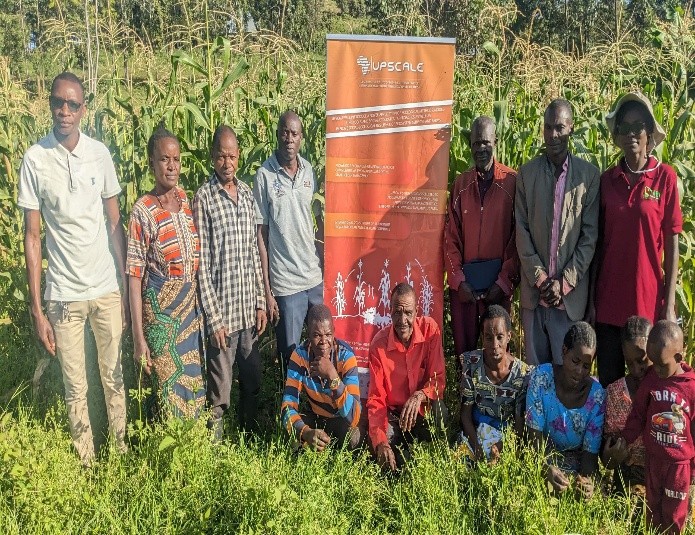Name of the event: The 4th National MAC Meeting in Ethiopia and socio-ecological validation with stakeholders
Date: The meeting took place from 15th to 17th July 2024
Venue: The location of the meeting was at JeCCDO Training Center in Bishoftu, Ethiopia and hosted by the Institute for Sustainable Development (ISD). It was intended to increase collaboration and encourage stakeholders’ participation in the integration of Push-Pull technology (PPT) in the Ethiopia Agricultural Extension system, solutions for the identified implementation challenges and mainstreaming the Push-Pull technology in various parts of the country through the linked network with the Ministry of Agriculture, and different multi-actors who can contribute in the co-construction of knowledge, value chain process, provide technical and policy supports.
The 4th National MAC (NMAC) meeting brought together partners and stakeholders from Justus Liebig University Giessen in Germany, Lund University in Sweden, Maseno University in Kenya, Wollo University in Ethiopia, Ministry of Agriculture, Ethiopia Commodity Exchange, Ministry of Trade and Regional Integration, Ethiopian Institute of Agricultural Research and Sasakawa African Association and PPT Model farmer to discuss all facets of Agricultural farming practices for socio-ecological modelling validation under PPT areas, Ethiopian Agricultural Extension system for PPT integration, solution of implementation challenges, and Progress status and consideration of MAC to promote PPT expansion and project sustainability.
The main objectives of the meeting were:
- Socio-ecological modelling validation within Push-Pull technology implemented areas,
- Ethiopian Agricultural Extension System and Stakeholder Analysis for PPT expansion and drew MAC road map for project sustainability.
Welcome remarks and progress status
Ghebremedhin Belay, the Executive Director of ISD, while welcoming the participants, addressed that ISD has increased its partnership with the Ministry of Agriculture and other government organizations, Wollo University, Debir-Markos University, Sasakawa African Association and other NGOs for PPT intensification and expansion since the million Ethiopian Agricultural workforces depended on Maize and Sorghum production. He also added:
‘’Upscale-farming in Push-pull technology for million Ethiopian household farmers as each of farming plots is usually found under 1 hector.’’
He concluded by emphasizing the potential of PPT in reducing rural migration needed for better survival, and business expansion for rural communities in Desmodium seed supply, animal feed and livestock productions. Finally, he recommended new insight identified in past National MACs as a follow-up, assuring PPT integration as a sustainable farming practice for production, nutrient security, less climate change and exercise initiated with active deliberation.
After Mr Belay, Mr Gizaw G/Mariam, program manager for the USPCALE – Ethiopian team, mentioned that MAC has been supporting the UPSCALE project including integration of PPT with the existing agricultural extension systems as taken well as discussion with the Ministry of Agriculture and final stage of Desmodium seed registration. He stated the ISD’s bottom-up approach for PPT expansion in capacity buildings, communication, dissemination efforts and input distribution. As he finalized, ISD is moving on actors and collaborators through sharing experiences, provision of training and opening new doors in Sasakawa African Association, Melka-Ethiopia, Pelum-Ethiopia and other districts.
Drawing Project Sustainability
The Ethiopia MAC Stakeholder Analysis and Country-Specific Score-Card comprises diverse stakeholders representing key facets of the nation’s agricultural value chain. Its membership encompasses representatives from governmental bodies such as the Ministry of Agriculture, non-governmental organizations including PELUM Ethiopia and PAN, agricultural research institutes, institutions of higher learning, financial institutions, and farmer representatives. This inclusive composition ensures comprehensive representation and facilitates holistic approaches to address challenges and opportunities within the Push-Pull dissemination.
The stakeholder analysis of MAC members indicates a high level of interest, very high impact and benefits, and, very low potential conflicts on Push-Pull technology in Ethiopia. However, PPT faces challenges including labour-intensive establishment and maintenance, issues with open grazing, difficulty in incorporating crop rotation and intercropping, disruption of Desmodium establishment by frequent tillage, and increased demand for Desmodium seedlings. Additionally, PPT requires substantial land, which crowd out space for essential food crops.
Socio-ecological Model Validation
During the NMAC meeting, participants had a chance to present and discuss the following papers:
- Setting Stage for Socio-ecological Model Validation by Dr. Nikos Alexandridis, Researcher at Lund University, Sweden.
- Socio-ecological Model Validation within Push-Pull Technology expanded areas in Ethiopia by Nikos Alexandridis, Researcher at Lund University, Sweden and Dr. Adewole Olagoke, Justus Liebig University Giessen, Germany.
- Ethiopia Current MAC Progress Status by Mr Gizaw G/Mariam, Ethiopia MAC Secretary and Program Manager of ISD
- Ethiopia Agricultural Extension System for Push-Pull Technology Expansion by Mr. Alemayehu Gemechu, Director of Extension System, Ethiopia Ministry of Agriculture.
- Ethiopian Stakeholder Analysis and Country Scorecard Validation by Dr. Frederick Aila, Lecturer at Maseno University, Kenya.
- Push-Pull Technology Farmer Testimony and Experience Sharing by farmer Endris Mehamed in Dawachefa Woreda, Ethiopia
- Drawing Project Sustainability: Road Map to Sustainability Networks/Mainstreaming by Dr. Benjamin O. Obok, Maseno University, Kenya.
After all the presentations were delivered to the audiences of the meeting, discussion was made and detailed validation feedbacks were conducted for Socio-ecological Modelling in UPSCALE. All participants were also involved in the survey of Ethiopia MAC Stakeholder Analysis, Country-Specific-Score Card for long-term sustainability and widespread adoption of PPT.
Recommendations and Forwarded Action Points
- Integrate the PPT extension package as part of the national agricultural extension system and explore possibilities of digital extension services.
- The Ministry of Agriculture ensures the sustainability of MAC roles through supporting, networking with other stakeholders, and organising platforms.
- Leverage existing value chains and enhance stakeholders’ awareness.
- Diversify seed access and promote community seed/seedling production.
- Initiated Desmodium seed/seedling value chain development and variety registration.
- Improve labour efficiency and promote community-based labour sharing.
- Address livestock management challenges: better grazing management-promoting forage production to reduce open/free grazing.
- Needed of modification for PPT system (3-2 rows of Brachiaria).
- Expand outreach and dissemination efforts.
The meeting concluded that NMAC has achieved a lot in the inclusion of PPT in the revised national agricultural strategy (Draft Development of Regenerative Agriculture Roadmap), lobbying and advocacy on policies, the final stage of Desmodium seed registration and empowered stakeholders participation, production of seedlings by FTCs, Wollo University and other nursery sites. MAC would continue its engagement with partners and stakeholders to reach out to research, dissemination efforts and knowledge and skills improvement. The UPSCALE project will increase the network among partners and stakeholders to share its development on diversification, modification, adaptation and looking for compatible crops and commercializing Desmodium seed.

